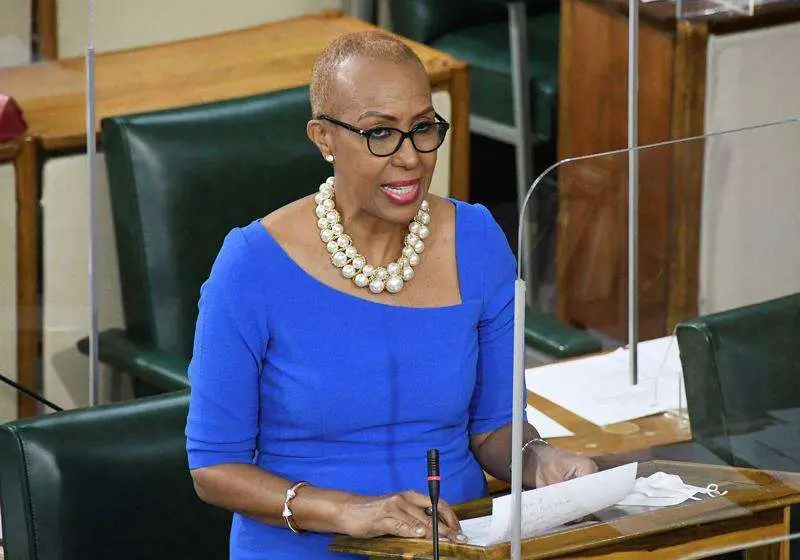
‘The Glasshouse’ has become top heavy
The educational sector comes under enormous pressure to attend to some 120,000 students from basic school to university levels on an annual basis. This year is going to be even more difficult as we strive to cope with the aftershocks of the ‘COVID’ years 2020, 2021.
It was simpler days when, in the 1940s and 1950s, the educators of that time shared a vision and an awareness of the huge task of dismantling a system that catered to the privileged while ignoring that section of the population largely considered as the underclass and undeserving of any form of a universal education structure.
The history of education prior to those years is muddled by the earlier strategies of slave owners to keep the Negroes uneducated so that they would keep their place as servants and labourers.
Before the Act of Emancipation went into effect in 1834 there was little in the way of a formal education system and absolutely no system for educating the slaves. White colonists who could afford it sent their sons back to the “mother country” for schooling, while others hired private tutors. Those who were less affluent sent their sons to one of the few free schools that were established through bequests from wealthy planters and merchants.
It was the churches that took the situation in hand after Emancipation, gradually developing a system of elementary education for the newly freed slaves.
Of interest, the first elementary school established in Jamaica for black children was built in 1823, 11 years before Emancipation, at Rowe’s Corner, a small district near Alligator Pond. Olive Senior’s book A-Z of Jamaican Heritage places importance on this, pointing out that the school was called Somerset and was built by the Moravian Church. Three years later it was transferred to Lititz where the Lititz Basic, Primary and All-Age School now proudly stands. Consider this: In 2023 it will be celebrating its 200th anniversary.
The school was renovated into a handsome building by nearby bauxite/alumina company Alpart in 1996. Beside the school complex is a beautiful Moravian Church. The elementary curriculum focused on reading, writing and arithmetic with some religious training and occasional geography and history instruction. In addition, boys were given training in agriculture and other manual arts, and girls received lessons in sewing and domestic science.
As the colonial and plantation influence decreased, it became necessary to move native Jamaicans into civil service and clerical occupations, and this resulted in growth in the secondary school system and the creation of government scholarships for university study abroad. Elementary schools began to hold annual scholarship examinations in order to allow some children who would not have been able to afford the fees to attend secondary school.
Come the 1950s and as the Ministry of Education began to get a more manageable hold of its awesome responsibilities, there emerged clear definitions of the different components of the education structure — basic, primary, secondary, tertiary. Today the ministry is one of the largest government entities and the most widespread in terms of Cabinet responsibility. It is comprised of 11 agencies, six regional offices, and a central office with perhaps 40 units which fall under five divisions.
Headquartered in what Jamaicans teasingly referred to following its construction in 1958 at 5 South Race Course as “The Glasshouse” (so named after our then Minister of Education Florizel Glasspole), the ministry provides the framework for the functioning of over 1,000 public educational institutions that serve over 120,000 students and over 20,000 teachers. It is also responsible for three universities and several community, multidisciplinary, and teachers’ colleges.
But with the COVID-19 interruption the Education Ministry has a lot of catching up to do. Teachers and students are playing a game of chance, worsened by the social problems that have arisen as a consequence of this enforced absenteeism.
Mark you, before COVID-19 we already had a learning crisis, lagging behind global and regional targets. In 2018, 35 per cent of grade four students had not mastered foundational skills in numeracy. According to World Bank simulations, a 10-month school closure was putting Jamaica at risk of losing 1.3 years in learning-adjusted years of schooling. Worse now that the ‘school is out’ span went closer to 24 months.
And even before we heard about guard rings and such the like, a study by Caribbean Policy Research Institute (CAPRI) on COVID-19’s impact on school absenteeism linkages with violence revealed that “pre-teen boys and teenage boys who had no learning devices were dropping out of school and forming cliques, carrying knives, smoking, gambling, and getting into fights. Girls are also at a higher risk of abuse and sexual exploitation when not in school”.
I was as pleased as you were to see our students in their uniforms returning to school. In many instances school has had to restart at ‘ground zero’. They are faced with many problems of resource shortages, teacher shortages, antisocial behaviour, and huge learning vacuums to be filled. These are universal problems and our Ministry of Education has stood up well to the challenge. But from the various opinions expressed by respected public figures speaking on education, there seems to be now, finally, a universal acceptance that the Glasshouse, with its huge areas of responsibility has become top heavy, and needs to do much groundwork on its educational base.
The inflow of students handicapped by shortcomings in literature and mathematics, and who are pouring into secondary and tertiary institutions each year, is putting our 2030 educational vision at grave risk. These students have been robbed, on the most part, of the basic learning skills that if properly imparted at the foundation stages would have provided the top-level structure with legs to stand on.
But, stop right there. The “Reform of Education in Jamaica 2021 Report” chaired by Professor Orlando Patterson was made public in January. The report highlights the need to place greater importance and channel resources into early childhood education. Is anybody out there listening?
And, in his remarks at the launch of the report on January 14, attended by the prime minister and the minister of education, the professor did not mince his words: “Early childhood education is fundamental,” he was reported in the media as saying, “This is the foundation on which education exists.
“Work done not only by economists in education and sociologists indicate the importance of early education not only on later education but on later social behaviour as well.”
He also pointed out that data from the 2019 PEP results indicate that a majority of students at the exit point of primary school remain illiterate and innumerate.
Professor Patterson said the 2019 Primary Exit Profile (PEP) results show that almost 60 per cent of students were failing mathematics, that 33 per cent could not read, that 56 per cent could not write, and 60 per cent exhibited difficulty in comprehension.
We cannot continue like this, says Ronnie Thwaites, himself a former minister of education.
It is good to know that the report has found favour with the ministry. “It is an excellent report,” says Education and Youth Minister Fayval Williams, “and if we faithfully and diligently implement the many recommendations they will begin to show dramatic [short-term and long-term] results,” she added.
My Thursday evening think tank contribution to the education debate suggests that we should name a separate Ministry for Foundation Education to accommodate early childhood, primary and all-age, while the other, for senior education or perhaps advanced education, continues to lead secondary and tertiary education.
The role of this Foundation Ministry, fully equipped with its own staff and resources, would be to prepare and bring our children up to a stage at which they can be formerly presented or inducted into the secondary level stream as fully literate.
The Foundation Ministry should be the bedrock of education in this country, the fulcrum, yet with the same importance as the Senior Ministry. The early childhood and primary school sector should have its own minister, its own programme, its own education officers, its own buildings, its own responsibility to the nation. Otherwise we are missing out on the vital importance of that sector — the foundation levels for all future education in Jamaica.
Consider this: The opening mission statement under the education section of the Jamaica Vision 2030 National Development Plan is: “To ensure that all children zero to eight years old have access to adequate early childhood education and development programmes.” Laudable and correct, but such a goal cannot be met in piecemeal fashion.
Every child has a right to the best possible start in life. Research has proven that the earliest years of a child’s life are a critical period for cognitive, social and emotional development, creating a solid foundation for health and well-being in childhood and beyond.
But now here comes the revolution; the turnaround which would demonstrate that Jamaica really believes in the value and importance of providing a solid foundation at the junior level, where it matters most, so that every child can learn, and every child must learn.
Lance Neita is a public relations professional and freelance journalist. Send comments to the Jamaica Observer or lanceneita@hotmail.com.

























